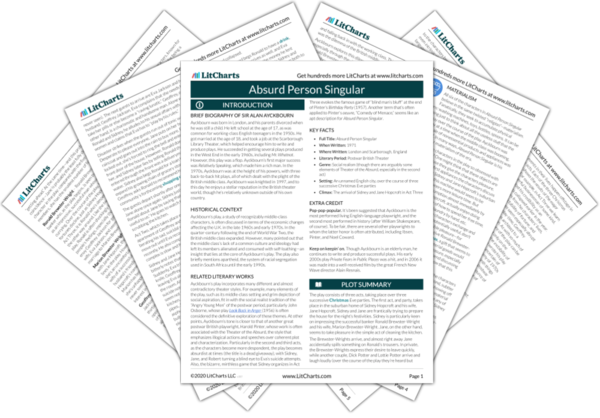It’s perfectly obvious that none of the characters (except perhaps Marion) want to play the game, but they play along anyway in an effort to stay in Sidney’s good graces. The game, much like the Hopcrofts’ gifts, is absurd and impersonal: again, Marion is made to drink. Finally, notice that neither of the Hopcrofts is playing the game: as the organizers (and, as we’ve seen, the people with the most social clout), they have the privilege of watching everyone else humiliating themselves for the sake of potential money or status.
